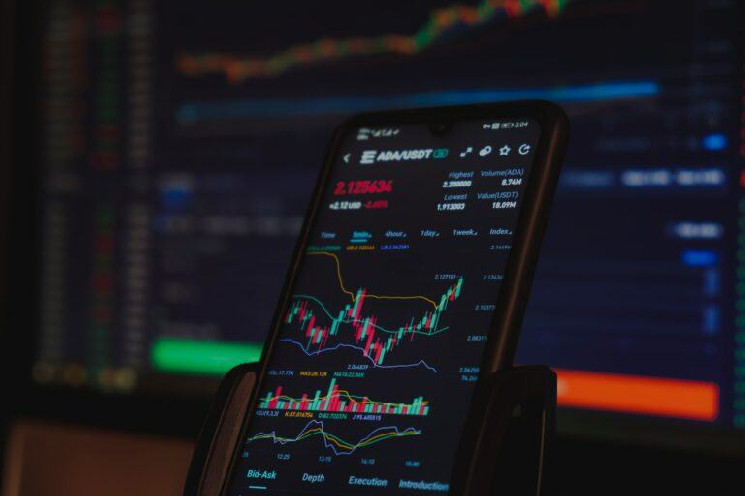‘$ADA Whale’ Explains His Approach to Valuing Cardano

A popular Cardano ($ADA) influencer has recently explained his approach to valuing the smart contract platform, pointing out he sees a contradiction between “those who really seem to believe Cardano is fundamentally overvalued” and himself.
In a series of tweets, the Cardano influencer known as “ADA whale” on the microblogging platform Twitter told his nearly 110,000 followers that those who believe Ada is overvalued “mostly appear to approach it from a technology stock valuation perspective” whereas the influencer looks at it “more in a FX [foreign exchange] valuation context.”
The main contradiction between those who really seem to believe Cardano is fundamentally overvalued and myself (can’t speak for others) is that they mostly appear to approach it from a technology stock valuation perspective whereas I look at it more in a FX valuation context
— ADA whale (@cardano_whale) August 9, 2022
Per the whale, seeing cryptoassets as technology stocks would mean dumb money is attracted to Bitcoin, as the flagship cryptocurrency is “slow, doesn’t have smart contracts, [and has] little innovation” in its core business. Dumb money, it’s worth noting, is a term for capital managed by retail investors who do not have access to proper analysis and instead trade based on instinct.
The influencer noted that the market hasn’t been dominated by dumb money “for years” and as such “there is something else at play here.” They added that investors then start looking at crypto analogies for monetary and fiscal policy, security, growth, inflation, and more.
Decentralized applications, he added, are meanwhile building on top of these. Per his words, layer-1 networks are “being built as a product can be valued as stocks, with much more limited upside.”
ADA whale also noted that the currencies Switzerland, Hong Kong, and Singapore, which collectively have 0.2% of the world’s population, are all in the top 20 fiat currencies with “market cap multiples” that of Bitcoin. They concluded that currency upside “is a lot larger, but not easy to get right.”
As CryptoGlobe reported, a recently published report from Messari suggests that Cardano is being ‘aggressively priced’ ahead of the Vasil hard fork, at least when compared with rival smart contract networks that aren’t Ethereum, including Solana ($SOL), Algorand ($ALGO), Tezos ($XTZ), and $NEO.
According to a tweet Messari shared, Cardano’s active addresses are far below those of Solana, but tower those of Algorand, Tezos and NEO, although it processed around 62,000 daily transactions, compared to over 296,000 from Algorand, 208,000 from Tezos, and 174,00 for NEO. Solana processes over 38 million daily transactions.
The tweet details that the total value locked on Cardano’s decentralized finance space is below that of Solana and Algorand, while its annualized revenue tops all other competitors except Ethereum.
Taking this into account, Messari found Cardano is “aggressively priced” when it comes to its total value locked multiple, which is based on the value locked on its DeFi applications, and on its transaction multiple, which is based on the cryptocurrency’s daily transactions.
As CryptoGlobe reported, the total number of wallets on the Cardano ($ADA) blockchain has surpassed the 3.5 million wallet milestone. Notably, the number of smart contracts deployed on the Cardano network has also reached a new milestone above the 3,000 mark for the first time in the cryptocurrency’s history as developers work on it ahead of the Vasil hard fork.






 Bitcoin
Bitcoin  Ethereum
Ethereum  Tether
Tether  USDC
USDC  TRON
TRON  Dogecoin
Dogecoin  Cardano
Cardano  Bitcoin Cash
Bitcoin Cash  Chainlink
Chainlink  Monero
Monero  LEO Token
LEO Token  Stellar
Stellar  Zcash
Zcash  Litecoin
Litecoin  Hedera
Hedera  Dai
Dai  Cronos
Cronos  OKB
OKB  Tether Gold
Tether Gold  Ethereum Classic
Ethereum Classic  KuCoin
KuCoin  Algorand
Algorand  Cosmos Hub
Cosmos Hub  Gate
Gate  VeChain
VeChain  Stacks
Stacks  Tezos
Tezos  TrueUSD
TrueUSD  Dash
Dash  IOTA
IOTA  Basic Attention
Basic Attention  Theta Network
Theta Network  Decred
Decred  NEO
NEO  Synthetix
Synthetix  Qtum
Qtum  Ravencoin
Ravencoin  0x Protocol
0x Protocol  DigiByte
DigiByte  Zilliqa
Zilliqa  Nano
Nano  Siacoin
Siacoin  Numeraire
Numeraire  Waves
Waves  Status
Status  Ontology
Ontology  Enjin Coin
Enjin Coin  Hive
Hive  BUSD
BUSD  Pax Dollar
Pax Dollar  Lisk
Lisk  Steem
Steem  Huobi
Huobi  OMG Network
OMG Network  NEM
NEM  Bitcoin Gold
Bitcoin Gold  Augur
Augur